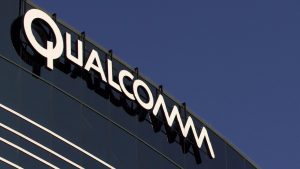 Qualcomm has hit back in the case it has filed against Apple claiming that a coordinated effort with the goal of misdirecting trade regulators is being waged against it by critics. This follows a move earlier in the month when Qualcomm asked the International Trade Commission to impose a ban on iPhones that have Intel chips installed on them.
Qualcomm has hit back in the case it has filed against Apple claiming that a coordinated effort with the goal of misdirecting trade regulators is being waged against it by critics. This follows a move earlier in the month when Qualcomm asked the International Trade Commission to impose a ban on iPhones that have Intel chips installed on them.
In contrast the iPhones bearing the Qualcomm modem chips would be exempt from the ban. The first time Apple used Intel chips was with iPhone 7. Currently between 30% and 50% of these iPhones have the Intel chips while between 50% and 70% have the Qualcomm modem chips.
Computer & Communications Industry Association
Apple and Qualcomm have been involved a dispute that has ran for several months now. At the core of the dispute is Apple’s objection to the business model that Qualcomm uses where customers are required to sign up for patent license agreements prior to purchasing chips. The chips that Qualcomm supplies are also known as modem chips and they assist devices to connect to and access cellular data.
Sabotaging business
Qualcomm has also accused the iPhone maker of directing its suppliers such as the Taiwanese-based Foxconn to refuse to pay license payments. The chipmaker has claimed this is an attempt to hurt its business.
In its Monday filing Qualcomm’s argument was that the call for a ban was not about the chips manufactured by Intel but rather about the patented technology which is being used in the Intel chips which are in the iPhone 7. Therefore according to Qualcomm, the ban would not impede competition in any way.
“Apple can purchase and utilize any LTE modem it chooses so long as it does not infringe Qualcomm’s asserted patents,” Qualcomm said.
Qualcomm went on to mention that other firms such as HiSilicon, Spreadtrum, Leadcore, Marvell Technology Group, Samsung and MediaTek are also manufacturers of chips and would be in a position to makers of smartphones if called upon.
